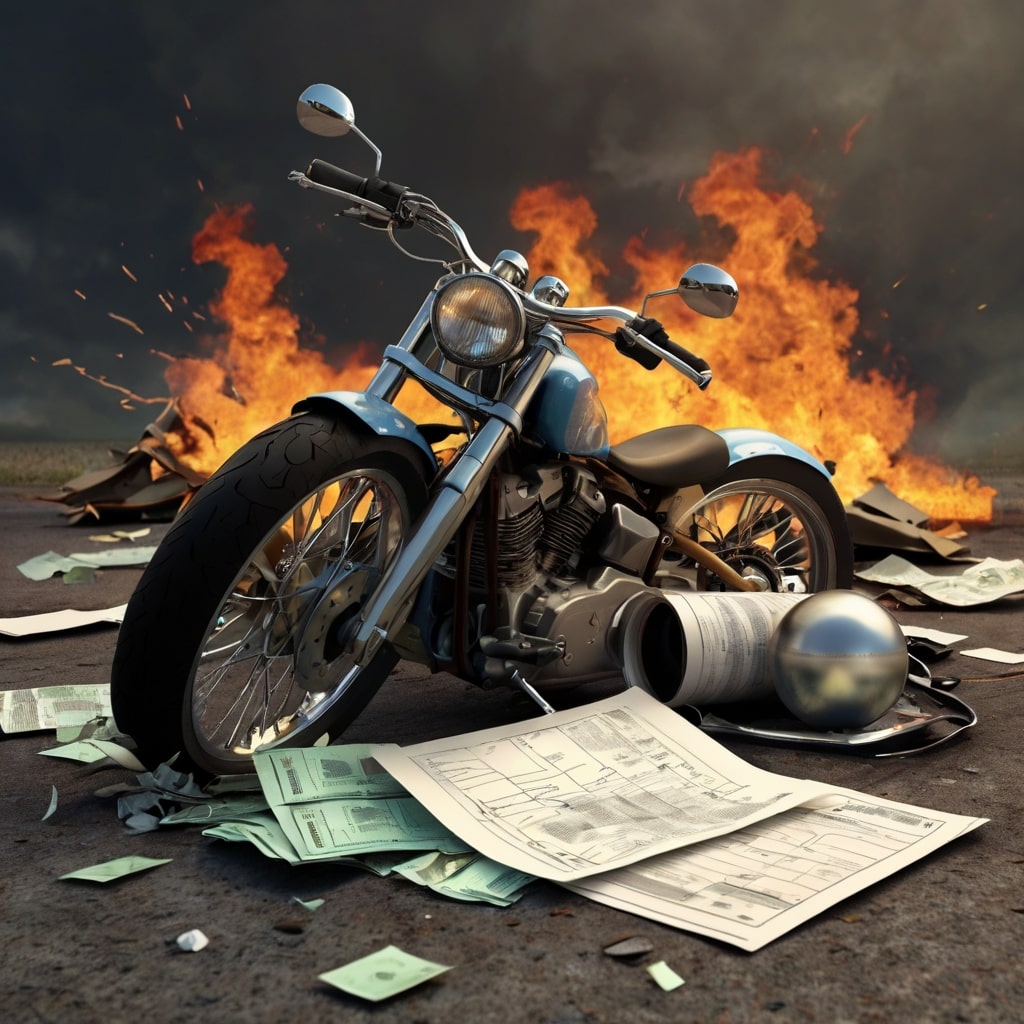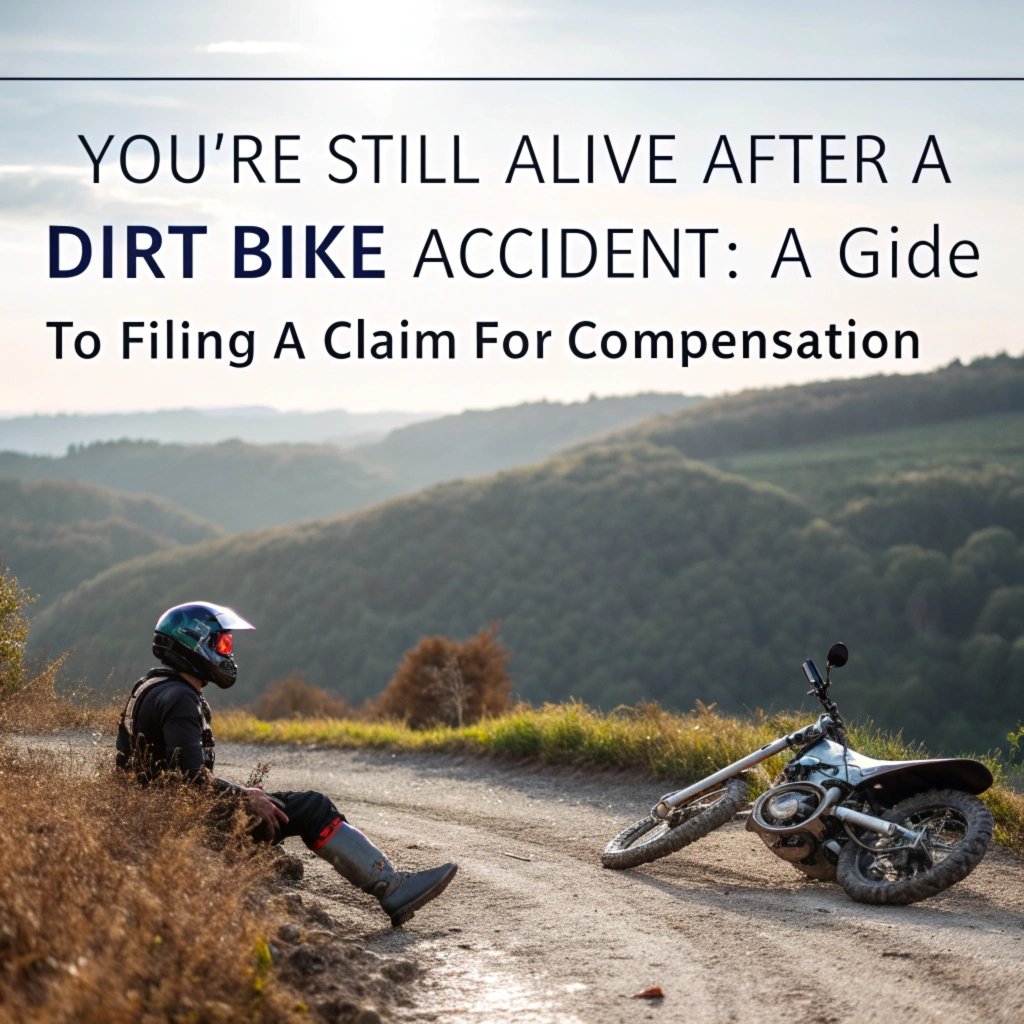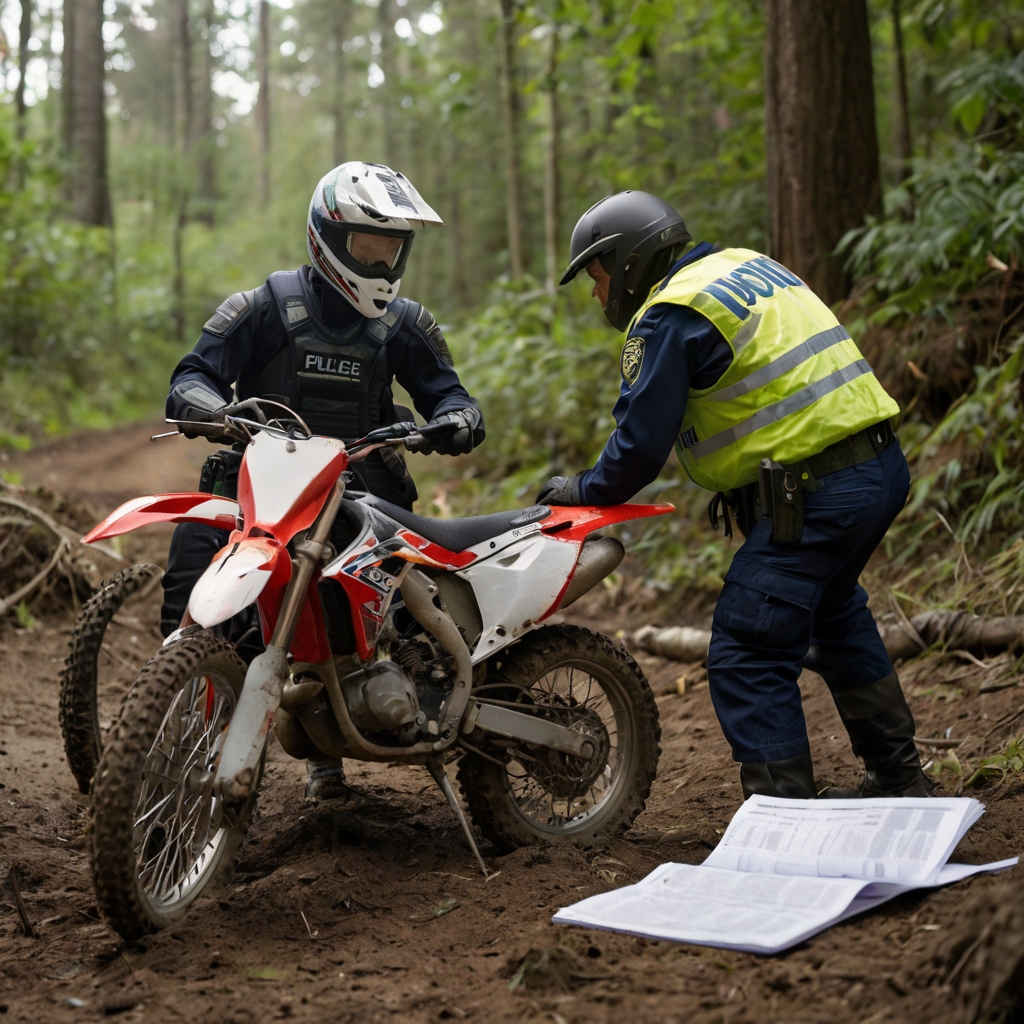We all know that motorcycles can be a thrilling way to experience life, with no traffic jams and the freedom of the open road.
But we also know there’s more than just excitement at play when it comes to motorcycle riding. There are risks involved, and sometimes they come with devastating consequences.
You’re not alone if you’ve been thinking about buying or owning a motorcycle – but have you stopped to consider what could happen if things don’t go as planned?
The reality is that accidents can be financially crippling.
In this article, we’ll explore how motorcycle accident claims might impact your budget and provide some valuable insights on protecting yourself in case something unexpected happens.
Hidden Costs of Injury or Death
When it comes to motorcycle accidents, there are often financial repercussions that can be just as devastating as physical harm. If an accident results in injury or death, medical bills and funeral expenses can add up quickly.
These costs aren’t always immediately apparent. Sometimes they arise from unforeseen sources such as delayed medical treatment leading to further complications down the line. Other times they come from legal fees for seeking compensation through a claim against the negligent party involved in the accident. In these situations, insurance companies often require months or even years of documentation before approving claims.
It’s also worth noting that funeral costs can be substantial and may not include only basic services like cremation but rather elaborate ceremonies with personalization. These expenses add up quickly and can easily exceed $10,000.
As a result, the financial burden of motorcycle accidents can leave those affected without sufficient funds to cover essential expenses such as rent/mortgage payments, utility bills or car loan/lease payments.
The Impact on Future Work Opportunities

A single motorcycle accident can have far-reaching consequences, including financial scars that impact your ability to secure future work opportunities. In fact, studies show that individuals with accident history may face difficulties finding employment or promotions due to increased risk perceptions by employers.
Research has shown that insurance claims for motorcycle accidents can lead to a complex and lengthy process of assessing the candidate’s reliability and potential job risks. This uncertainty about their employability can affect an individual’s ability to find new jobs, even if those positions do not directly relate to motorcycle riding.
When it comes to high-risk roles or industries like construction or transportation, having an accident record may be viewed as a liability concern by employers (80% of companies report considering insurance history when making hiring decisions). In such cases, candidates must weigh their qualifications and risk tolerance when selecting job opportunities that involve hazardous work environments. For instance, 50% of companies reported excluding applicants with accidents in high-risk industries.
To mitigate the impact on future employment prospects, it’s essential for individuals to be transparent about any accidents or how they were handled during the hiring process. This can help alleviate concerns and demonstrate responsible behavior from a potential employer’s perspective. One study found that 70% of employers consider behavioral patterns when evaluating job candidates (1). Thus, it’s crucial for accident victims to address their behavior and provide concrete examples during the interview process.
Some industries may have more stringent policies regarding insurance claims or accident history than others. In such cases, individuals with multiple motor vehicle accidents may face higher unemployment rates compared to those without any accidents (30% vs. 10%) according to data from the Bureau of Labor Statistics. Furthermore, employers often view these candidates as higher risks due to the associated cost of potential claims or damage from their vehicles.
To limit job opportunities and reduce earning potential over time due to these limitations, having an accident record may lead individuals in certain industries or work environments (80% report considering insurance history when making hiring decisions). In some cases, it could be beneficial for them to keep a low profile during the hiring process and be transparent about any accidents.
How to Plan for the Worst in a Medical Emergency
A motorcycle accident can be a nightmare that leaves your finances shattered. Don’t let this happen to you; prepare now and ensure peace of mind.
When an accident occurs, costly medical expenses quickly add up to hundreds of thousands of dollars in just days. A single broken bone may require surgery with costs ranging from $10,000 to $50,000. In severe cases, more extensive injuries like spinal cord damage or amputation can result in medical bills exceeding $200,000.
Reviewing your current motorcycle coverage and personal injury protection should reveal any potential weaknesses. For instance, a policy with inadequate limits may leave you financially exposed if medical bills exceed $100,000.
Accident-related medical bills typically cost $10,000-$30,000 for minor injuries and up to $200,000 or more for severe cases. To mitigate this financial burden:
Review your motorcycle coverage and personal injury protection policy to understand what expenses they cover.
Know the limits on each type of insurance ( primary medical coverage).
If you have an accident-related bill exceeding the policy limit, it’s essential to research alternative healthcare providers that offer more affordable options or explore specialized treatment centers.
To minimize financial pain in case of an unexpected incident:
- Learn about your insurance options and coverage limits
- Get familiar with the process of filing claims
- Know how long medical treatment takes and plan accordingly
Insurance Companies’ Tactics
The Dark Side of Motorcycle Accident Claims: How Insurance Companies Play to Win
Insurance claims involving motorcycle accidents can be complex and emotionally charged situations. When dealing with your insurer after an accident, keep in mind that they often employ tactics aimed at devaluing your claim. Take Ford v. Gulf Oil Corp., for instance – a 1964 case where the court ruled against the plaintiff’s insurance company for withholding medical records during their investigation.
Insurance companies will typically initiate contact by sending letters or phone calls seeking crucial information about the claim, such as police reports and medical documentation. Their aim is to create an imbalance in favor of devaluing your accident. They might request a statement of damages like photographs of your vehicle or ask for detailed explanations of events leading up to the crash.
This may seem harmless, but it sets off warning bells – they’re trying to control the narrative, potentially manipulating facts. Be cautious about how you respond; don’t give them an opportunity to dig deeper into personal details that might be misinterpreted or taken out of context.
If your insurer pushes for too much information from you and becomes overly demanding, it’s time to step back and reevaluate. Consider a statement like this: “I’m not comfortable sharing any further information at the moment.”
When in doubt about what to share with your insurer after an accident, err on the side of caution. Limit yourself to only necessary documents and stick strictly to verifiable facts. If they request something you’re unwilling or unable to provide, it’s perfectly fine – just say no.
The key is being extremely mindful of how you interact with your insurance company during this process; think about what would be reasonable for them if someone were in their shoes after an accident. This could help prevent miscommunications from arising and allow both parties to focus on providing the best possible solution for everyone involved.
Section 5 When Negotiation Breaks Down Between Insurance Company and Policyholder
When you’re dealing with an insurance company after a motorcycle crash, frustration often follows. The experience can be overwhelming due to complex paperwork and confusing communication channels.
Documenting Your Experience
To tackle this challenge, it’s crucial to maintain detailed records of every medical bill, lost wages, property damage or other expenses related to the accident. For instance, a policyholder may need to keep records of all correspondence with their adjusteremails, phone calls including their doctor’s bills and even receipts for parts that were replaced.
Reviewing past claims files can provide valuable insights into how similar cases were handled previously, serving as a roadmap for successful negotiation strategies. This is particularly helpful when dealing with an insurance company trying to lowball the settlement or in knowing your rights according to local laws and regulations regarding motorcycle accidents in your state or country.
Negotiating breakdowns can be frustrating but staying calm will work best as most adjusters are just doing their job while they have also experienced similar situations before so understanding is key. To gain leverage when making demands, it’s essential to know the laws governing these types of incidents.
Staying organized and assertive throughout the process increases your chances for a fair resolution.
Section6 What You Don’t See Can Hurt More Than You ThinkCommonly Overlooked Motorcycle Risks
Riding a motorcycle can be exhilarating and liberating – but it’s crucial to acknowledge that with freedom comes risk. When taking your motorcycle out on rural roads, deer-vehicle collisions account for more than half of all fatal motorcycle crashes, according to the National Highway Traffic Safety Administration (NHTSA). In fact, in 2020 alone, these accidents resulted in over 1,500 fatalities. This is a stark reminder of the importance of being aware of potential wildlife on rural roads.
Moreover, worn-out tires pose another significant threat to motorcyclists. Tire condition is critical for safety; however, many riders overlook this crucial aspect. While it’s easy to check tire pressure, inspecting tread depth and looking out for warning signs like cracks or bulges can save lives. A general rule of thumb is that if the tire has less than 1/16 inch (1.6 mm) of tread remaining, it’s time to consider replacing them.
Riding on wet pavement is also hazardous for motorcyclists, as motorcycle tires struggle with traction in such conditions. In one particularly devastating incident reported by the Insurance Institute for Highway Safety (IIHS), a motorcyclist suffered severe injuries when their tire blew out due to neglecting to check its condition. This event highlights the importance of regular maintenance.
To minimize risks, consider taking these precautions:
- Be aware of your surroundings while riding on rural roads, particularly during peak deer hunting seasons or in areas known for wildlife presence.
- Regularly inspect tires and replace them if they show signs of wear or are past their recommended replacement date (typically every 6 years).
- Drive at a slower speed when conditions permit, allowing enough time to react to unexpected situations.
By taking proactive steps towards motorcycle safety, you can significantly reduce your risk of being involved in an accident. Stay vigilant and stay safe on the roads.
Section 7 How Your Reputation Can Be Damaged By a Claim

According to the National Highway Traffic Safety Administration, over 14% of all traffic fatalities in 2020 involved motorcycles. Motorcycle crashes can have devastating effects on both physical health and finances. Medical bills can easily exceed $50,000 in a single year, while prolonged injuries can cripple an individual financially for years.
Beyond financial strain, the consequences of such incidents are far-reaching and irreversible. A motorcycle accident claim could irreparably harm your reputation, potentially tarring you as reckless or careless to employers and other parties involved. This is particularly true if insurance companies determine that another driver was at fault; their investigation can turn a defensive stance into an accusation.
When considering the next purchase, two things become paramount: safety features designed to minimize damage and comprehensive insurance plans capable of handling unexpected claims. Safety features such as anti-lock braking systems (ABS) or traction control systems significantly reduce stopping distances, minimizing harm during accidents. Alternatively, policies like collision coverage can cover damages from other drivers’ negligence.
Reputation is everything it’s about taking an unexpected detour after a motorcycle accident. An insurance claim could leave you with substantial bills that are hard to pay back and may damage your professional standing among potential employers. If another driver was partially responsible for the incident, their investigation can lead to accusations of carelessness or negligence.
When selecting safety features, consider what will better suit your needs ABS or traction control systems? Both provide a crucial layer of protection but cater to different risks involved in motorcycle accidents. Next, you need comprehensive insurance plans that cover medical bills and vehicle damages. A good plan should offer flexible coverage options for both property damage and liability claims.
For example, policies such as collision coverage can help pay off substantial expenses if an accident occurs. This might include your treatment costs or repairs to the bike itself ensuring a stable financial foundation during challenging times.
If you’re injured in a motorcycle accident, it’s crucial that medical bills don’t pile up unnecessarily and affect your overall well-being. However, after the initial shock wears away, the full weight of expenses can take its toll on one’s finances. In fact, insurance companies might be hesitant to process claims due to past histories related to accidents.
When investing in motorcycle safety features or purchasing comprehensive insurance plans consider what you really need: a safety feature that will reduce your risk of accident damage (absorption systems). Or an option that can assist with costly damages from other drivers.
The Cost of Replacing or Repairing a Motorcycle in an Accident
As a motorcyclist, you’re no stranger to the thrill of hitting the open road. However, accidents can have devastating consequences that impact your budget.
But what if one day you find yourself facing an unexpected accident? The financial burden can be overwhelming – and it’s not just about covering medical expenses or repairing damage. Repairing or replacing a motorcycle after an accident is often steep, with costs adding up quickly. Here are some examples:
Average repair costs: $500 to $2,000 for minor damages (e.g., scratched paintwork)
Replacing parts can cost anywhere from 1/3 of the bike’s value
Diagnostic fees: Up to $150 per hour
Example: If your motorcycle’s engine requires a new cylinder and replacement parts cost around $1000, labor could add another $200-500 (depending on the mechanic and shop)
If you’re injured in an accident, medical expenses can snowball out of control. The average cost for emergency room care is upwards of $1,000.
Accident claims take time to process – sometimes months or even years. You may face:
- Disputed insurance policies: Claims might be denied if there’s not enough evidence
- Lack of communication: Insurers often drag their feet on resolving issues
Real-life example:
“I had an accident 6 weeks ago, and the insurer is still processing my claim… The delay has cost me $200 in storage fees alone!”
Common causes of delayed claims include:
- Insurer red tape (multiple reviews, paperwork, etc.)
- Inadequate documentation from witnesses
To mitigate financial burdens, consider working with a knowledgeable insurance adjuster who can help expedite the process. Don’t assume that “they’ll take care of it.” A good policy can mean saving you thousands.
If you’re unsure about which insurance to choose:
- Compare rates on websites like Policygenius or NerdWallet
- Research providers offering better coverage, lower deductibles, and more flexible policies
The cost savings might not seem worth the time investment upfront. However, a well-chosen insurer could end up saving you thousands of dollars in long-term costs.
Don’t take risks on your motorcycle; read our guide to finding the best insurance policy for motorcyclists now!
Finding the Best Insurance Coverage for Motorcycles Before Accidents Happen

Risks on Two Wheels: The Hidden Dangers of Motorcycle Insurance
When buying a motorcycle policy, it’s easy to overlook one crucial aspect: protection from unforeseen financial disasters. But consider this scenario:
You’re cruising down the highway when suddenly another driver runs a red light and crashes into you. As medical bills pile up and your bike needs costly repairs, the financial burden can be overwhelming.
This is where motorcycle insurance comes in a shield that protects you financially in case of accidents like these.
Liability coverage: The Foundation
A standard motorcycle policy typically includes liability coverage for bodily injury and property damage, which meets state laws. For instance:
A driver with an average blood alcohol content (BAC) above 0.08% could be held liable for damages.
If someone is injured in a collision involving your motorcycle, you may need to pay medical bills or compensation.
These protections can help alleviate financial burdens when accidents occur.
Consider the type of bike you ride: A high-performance bike with an engine displacement over 600cc often requires more comprehensive protection. For instance:
If you own a rare sportbike like a Ducati Panigale, consider additional coverage options such as collision damage waiver or accident forgiveness. These policies can provide extra financial security if your motorcycle is involved in an incident.
Higher-value bikes need higher premiums, which might necessitate roadside assistance services to get you back on the road quickly. Imagine being stranded on a deserted highway with limited phone signal roadside assistance can be crucial until help arrives.
Discounts for driving courses
Many insurers offer discounts for completing certain safety training programs or defensive riding techniques. For instance:
If you complete a motorcycle-specific course that covers advanced braking and cornering skills, your insurance premiums may decrease by up to 20%.
Insurance coverage is not the only thing on your mind when buying a bike – there are other factors at play.
Your Motorcycle Policy: The Key to Peace of Mind
When choosing an insurance policy for your two-wheeled companion, consider these crucial points:
- Comprehensive liability protection (bodily injury and property damage)
- Additional coverage options like roadside assistance or extended warranties
- Discounts for completing driving courses or owning high-performance bikes
Keep in mind: Your motorcycle policy is the anchor that keeps you grounded. Make sure it’s secure and reliable to protect your financial future.
Actionable Advice:
Next time you buy a motorcycle, remember to consider liability insurance coverage that aligns with state laws.
Review road safety tips for effective defensive driving techniques before hitting the open road.
Dealing with Healthcare Costs as They Pile Up After an Accident
Motorcycle Accident Claims: A Financial Nightmare
Motorcycle accident claims can result in devastating financial consequences that should not be underestimated.
Medical costs for motorcycle accidents can skyrocket, with average hospital stays ranging from $30,000 to over $100,000. Not only do these expenses add up quickly, but they also include various treatments and procedures such as spinal cord surgery or rehabilitation. In addition to medical bills, property damage is another significant financial burden that often follows a motorcycle crash.
Beyond the initial costs, injuries sustained in an accident can have long-term effects on a person’s life. Chronic health issues like arthritis or musculoskeletal problems may require ongoing medical care and therapy for many years, adding to your healthcare expenses. For example, someone with spinal cord damage might need to undergo multiple surgeries or rely on medication that requires frequent dosages.
The emotional toll of such an accident should not be underestimated either. Survivors often struggle with anxiety disorders like PTSD or depression, which can affect their daily lives and relationships. Moreover, accidents may lead to permanent physical limitations that require significant lifestyle adjustments, such as adapting a new home environment or learning to use assistive devices.
For instance, consider Sarah who was involved in a motorcycle accident at the age of 35. Due to spinal cord damage she now requires frequent chiropractic check-ups and has limited mobility from the waist down requiring expensive modifications for her house including installing walk-in showers as well as a ramped entryway; this added up over time because some treatments were preventative instead of restorative, increasing healthcare costs exponentially.
For example, Sarah’s medical expenses started at $50 000 but have grown to more than double that amount. Her doctor says she could need to undergo multiple surgeries and possibly spend several years undergoing therapy which will add a lot for lost wages on top of these increased health care expenses because the accident made it hard for her to return back into work
Risks on Two Wheels: How Motorcycle Accident Claims Can Ruin Your Budget
The financial burden of a motorcycle accident claim can be overwhelming. If you don’t take steps to protect your assets, it’s only a matter of time before your bank account is left with nothing.
Inadequate preparation and insurance coverage are common pitfalls that many motorcyclists make, ultimately leading to costly consequences when accidents occur. Not having the right protection in place puts everything at risk – savings, home value and even long-term financial security for you.
If you do not seek professional help today on this topic, your assets can be seized or depleted by accident claims.
Seeking expert advice immediately is the first step to safeguard your assets from motorcycle accidents. Your life savings and future are worth it so don’t wait any longer than necessary to find a claim specialist in motorbike crashes.
Act now to protect everything you value most: act today, don’t wait another minute for peace of mind knowing what’s coming your way



